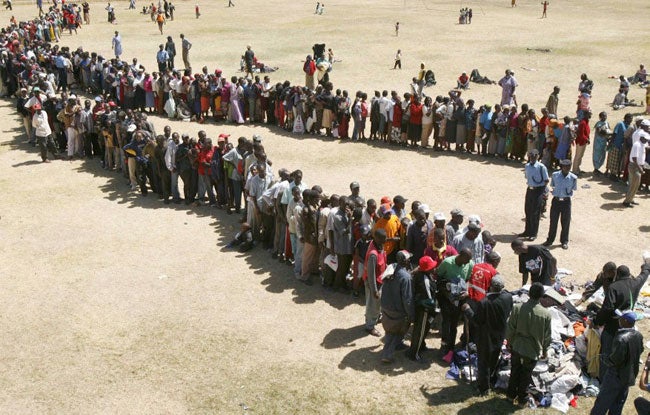Kenyan police 'had shoot-to-kill policy'

International human rights campaigners have accused Kenya's police of carrying out an unofficial "shoot to kill" policy during post-election violence which has killed at least 575 people.
The statement from Human Rights Watch (HRW) came as the United States and the European Union released their strongest comments yet on the flawed presidential election. Both said it would not be "business as usual" in Kenya until the political impasse was resolved, which diplomats say is a veiled threat of sanctions.
US assistant secretary of state Jendayi Frazer said vote rigging had "made it impossible to determine with certainty the final result".
Violence swept the country following Mr Kibaki's controversial re-election and hurried swearing-in. The Kenya Red Cross yesterday said the number who have died has reached 575.
Western countries are likely to review their development programmes in Kenya in the light of the past fortnight's events, which has shattered the perception of Kenya as a democratic and stable country.
But the majority of aid money given to Kenya is spent on Aids treatment, general healthcare and education. Cutting that funding, diplomats admit, will harm the wrong people.
Travel bans on prominent government figures may be considered, although a handful of Mr Kibaki's ministers are already banned from travelling to Britain because of corruption allegations.
So far just five countries have congratulated Mr Kibaki on his re-election – Uganda, Somalia, Swaziland, Morocco and Kuwait. The majority of African countries have refused.
Many of those killed in the past fortnight have been shot by police. HRW said: "Kenyan police in several cities have used live ammunition to disperse protesters and looters, killing and wounding dozens."
One police officer told HRW's monitors: "This 'shoot to kill' policy is illegal, and it is not right. We have brothers and sisters, sons and daughters out there."
National human rights organisations have made similar claims, as has the opposition Orange Democratic Movement party (ODM). Police officials in the western town of Kisumu, an opposition stronghold, have admitted firing live bullets at demonstrators.
More violence is feared this week when the opposition plans to hold demonstrations in 28 towns through the week. Previous attempts by ODM to hold a rally in Nairobi's Uhuru Park ended when police fired tear gas, water cannons and live bullets in the air to prevent would-be protesters reaching the park.
Kofi Annan, the former UN secretary-general, is expected to arrive in Nairobi on on Wednesday to try to mediate a political agreement between President Kibaki and Raila Odinga.
South African Archbishop Desmond Tutu, African Union chairman John Kufuor and Ms Frazer have all failed even to get the two men in the same room. Mr Kibaki has demonstrated his determination to remain in power by appointing his supporters to the key cabinet posts.
Mr Odinga is unlikely to agree to anything less than a full re-run of the election – something Mr Kibaki will not countenance.
Subscribe to Independent Premium to bookmark this article
Want to bookmark your favourite articles and stories to read or reference later? Start your Independent Premium subscription today.

Join our commenting forum
Join thought-provoking conversations, follow other Independent readers and see their replies